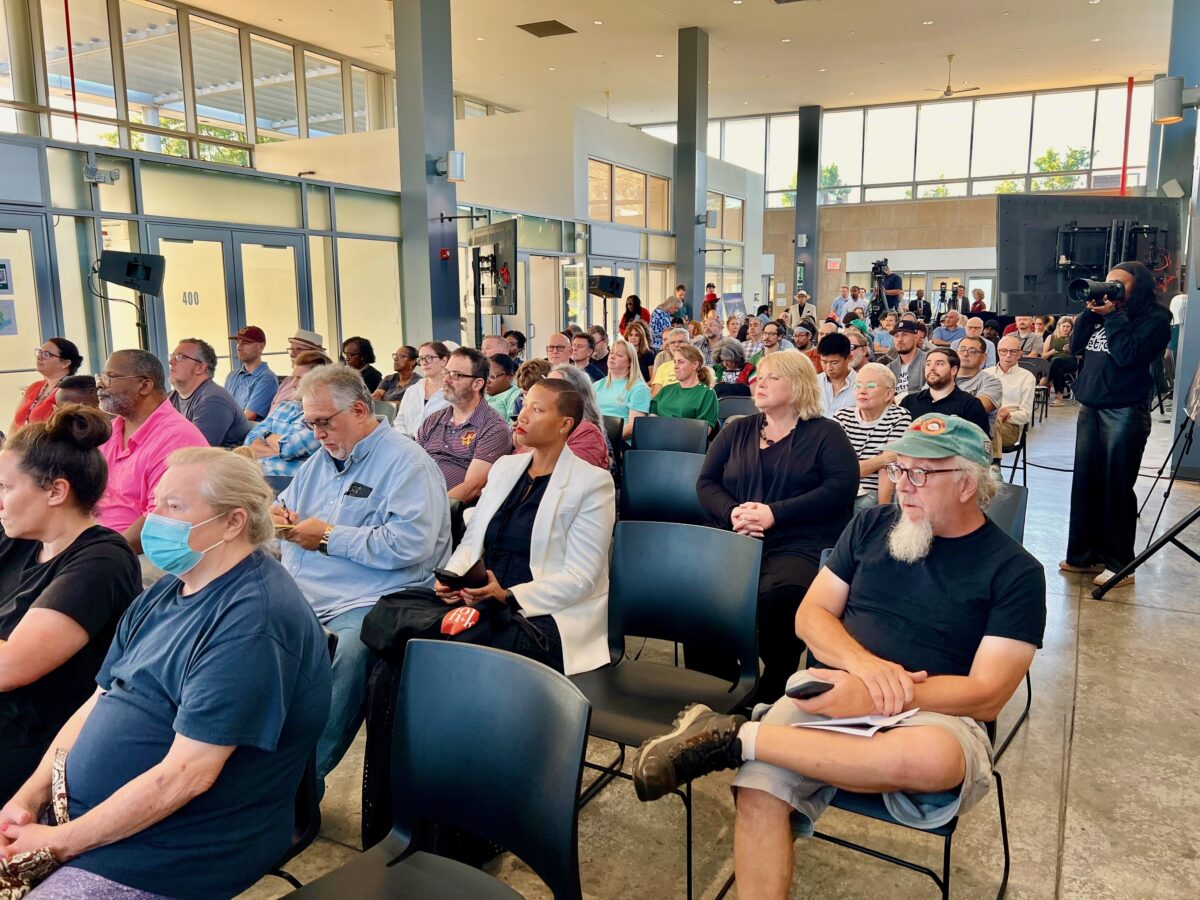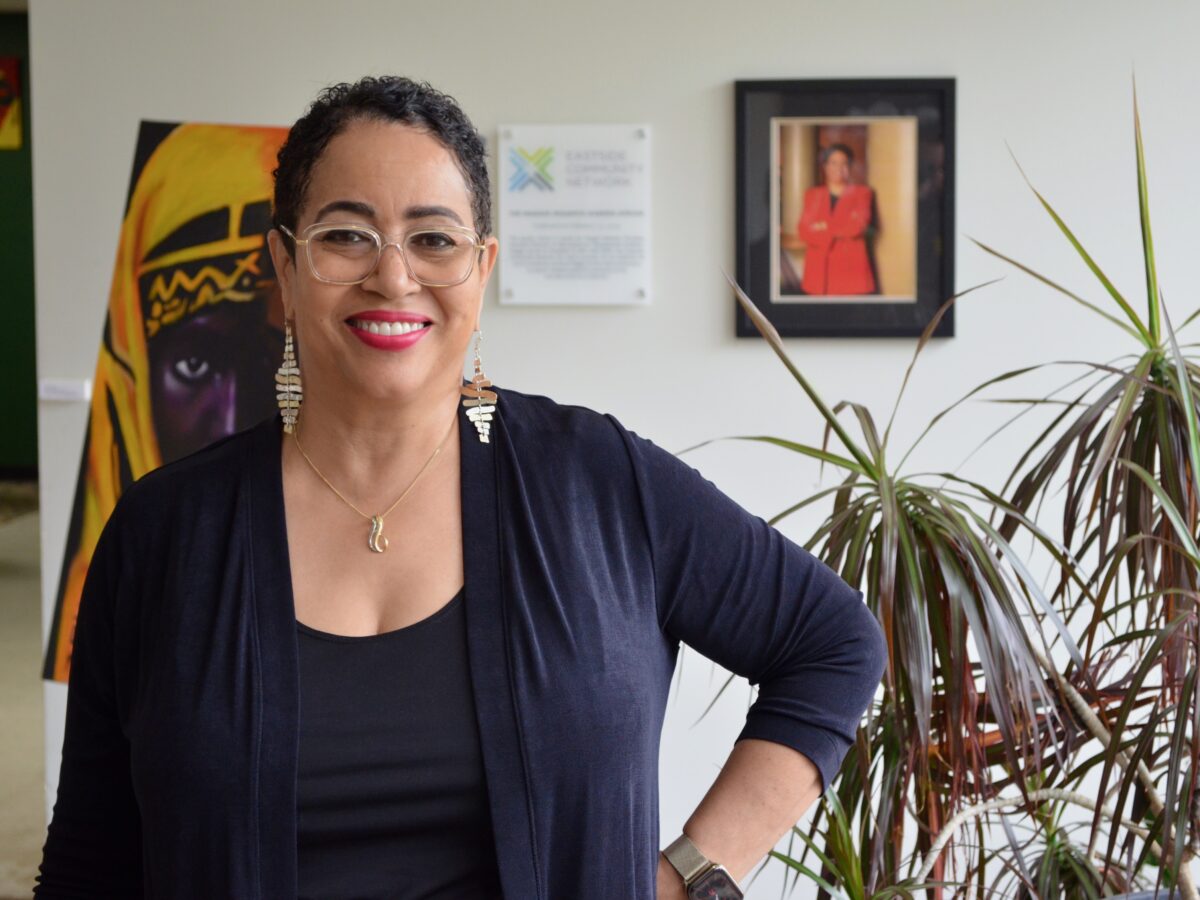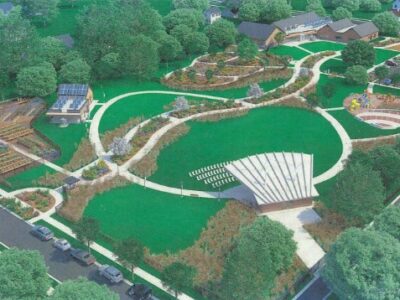Overview:
-The first of nine meetings is held on the $150 million Detroit City Football Club stadium project near the Corktown and Mexicantown neighborhoods.
-The site is occupied by the long-vacant Southwest Detroit Hospital, which the DCFC plans to demolish.
-One North Corktown resident compares the stadium project to the "nuisance" of the former Tiger Stadium.
Community members got a first look Thursday at plans for the Detroit City
Football Club stadium that’s planned to open at Michigan Avenue and 20th Street for the professional soccer club’s 2027 season.
The community benefits ordinance meeting, held at the Mexicantown Mercado,
is the first of nine where project details will be shared and community members will ask questions and offer input.
The project site is occupied by the long-vacant Southwest Detroit Hospital, which the DCFC plans to demolish.
The DCFC has not yet submitted a demolition permit for the vacant hospital to the city, as it is first removing a significant amount of water from the basement, city spokesperson John Roach told Planet Detroit Monday.
Once a permit is approved, the developer’s first step before demolition is abatement, Roach said. DCFC is “aware” of the need for a fugitive dust plan for the demolition, which would be submitted by the developer’s contractor, he said.
Community benefits process in play for DCFC project
Aaron Goodman, community benefits manager at the city’s Planning and Development Department, discussed the community benefits ordinance, which requires developers to engage with neighborhoods to identify community benefits and manage potential negative impacts.
As part of this, the city’s Planning and Development Department is establishing a nine-member Neighborhood Advisory Council selected from within the project’s impact area.
The impact area, which is set by the city’s planning director, is defined as Martin Luther King Jr. Boulevard to the north; the Lodge Freeway, 6th Street, Trumbull Street, 8th Street, and Rosa Parks Boulevard to the east; the Detroit River and West Jefferson Avenue to the south; and West Grand Boulevard to the west.
Four advisory council members are appointed by the planning director; one by the City Council member whose district has the most impact area; one member each is selected by the council’s two at-large members; and two will be selected by a community vote at the next community benefits meeting Thursday, Aug. 28.
The advisory council will be responsible for representing their communities
and making recommendations on the mitigation of any negative impacts from the project.
“We think this is an incredibly important opportunity to help shape the future of your
neighborhood,” said Alexa Bush, director of Detroit’s planning department.
“We do really appreciate your time sharing your feedback, asking
questions that you have of the project, because we really know that’s going to be the
way to achieve the best outcome here.”
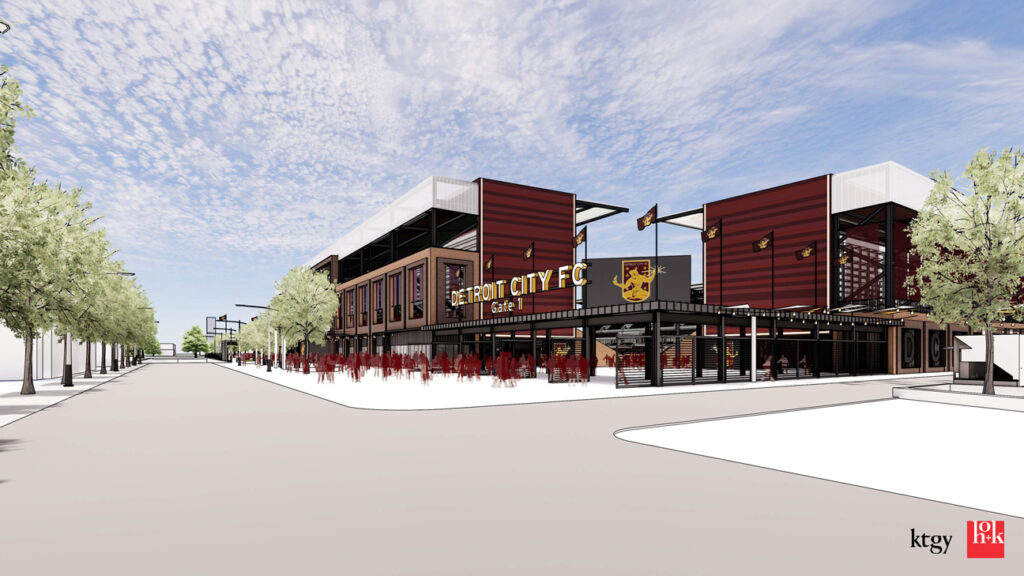
North Corktown resident voices parking concern
Not everyone supports the DCFC plan, and some expressed frustration Thursday with not being consulted about project decisions. Parking spaces to accommodate the development are a particular area of concern.
Bill Cheek of North Corktown compared the development to the “nuisance” of the former Tiger Stadium, which was located at Michigan and Trumbull.
The stadium events will clog parking in neighborhoods and increase crime, said Cheek, who asked whether it’s too late to make changes.
“(It’s) perfectly in keeping with how planning views all the residents of North Corktown
as invisible peasants who don’t deserve a voice in how our community is developed,” he
said.
DCFC co-founder and CEO Sean Mann said the structure of the development is largely set, but small modifications can still be made. Per city ordinance, the developers are required to offer 2,500 parking spaces, he said.
Between the parking deck, the acquisition of nearby property, and partnerships with neighboring property owners, Mann said DCFC has secured more than 2,600 parking spots. The soccer team will offer bike racks at the site and is looking at making them available further away and offering a bike valet, he said.
Others expressed concern about public access to the stadium and its overall benefit to the
neighborhood. Joe Aasim of Hubbard Richard said he stopped playing in the
club’s recreational league because the turf was dangerous, and asked whether there will be opportunities for community members to play at the new stadium.
“As a voice of the community, I can tell you, we’d all want to play on the Lions field, and
we don’t get to,” he said. “Be the first one to give us a chance, I dare you.”
Mann said the club has to be mindful of the limits of the durability of the grass with outside use, and added that AlumniFi Field will be more accessible than other stadiums in the city.
The project will be an overall asset to the community, he said.
“We built this as our forever home, so this is a place that we want to create memories
for generations to come,” he said. “That’s in the design of it and why we’re moving
forward with this project.”
MORE PLANET DETROIT REPORTING
‘Actions speak louder than words’: Detroiters weigh in on Belle Isle’s future following $144 million investment
A survey is open through Labor Day that asks visitors to rank potential investments in Belle Isle.
Detroit’s Eden Park: A $21 million bet on health, wellness in polluted community
In Detroit’s 48217 ZIP code, the $21 million Eden Park Community Project aims to transform a 6-acre lot into a hub for health and wellness. The vision includes a Montessori school, community garden, amphitheater, and a secure area for Alzheimer’s patients and caretakers.
Balancing safety and community in Southwest Detroit: Lessons from Clark Park’s revitalization
In Southwest Detroit, Clark Park stands as a testament to community resilience, evolving from a site of drug activity and violence into a vibrant neighborhood hub. This transformation, driven by grassroots initiatives and city collaborations, highlights the power of community-centered policing, though it sparks debate over police roles in public spaces.
The $150 million AlumniFi Field plan
The recently named AlumniFi Field is an 11-acre, $150 million development that calls for a 15,000-seat soccer-specific stadium, 76 affordable housing units, and a 421-space parking deck for both tenants and the public.
The plans include 16,000 square feet of year-round commercial space off 20th Street, with two restaurants and a public plaza.
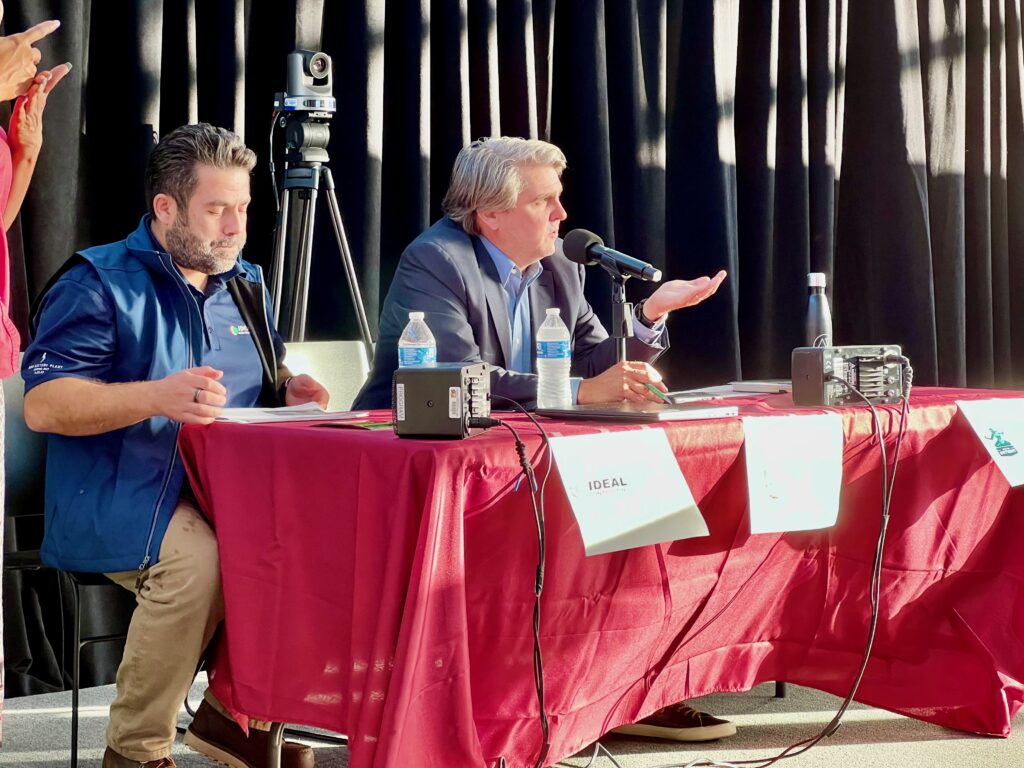
DCFC began as the Detroit City Futbol League in 2010, a recreational co-ed adult
neighborhood league, and established its amateur DCFC team in 2012. The team
played at Cass Tech High School before moving to Hamtramck’s Keyworth Stadium in 2016, when it needed more seating and space.
As DCFC continues to expand, Mann said the team needs a place of its own.
“We’ve always been renters there; it’s not really a home for us,” he said of Keyworth Stadium. “It’s not a place where we can continue to grow and truly be the soccer team, the team that represents the world’s sport and a great American city.”
The stadium is expected to host between 30 and 35 events a year, which includes about
22 soccer games, five to six American football games, and three to five concerts, Mann
said.

